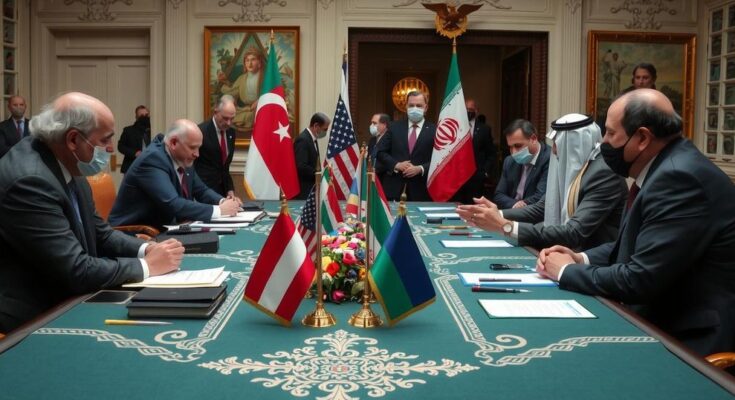Turkey’s Foreign Minister met with HTS leader Ahmed al-Sharaa in Damascus to discuss Syria’s constitution, Kurdish issues, and Israeli actions. The Biden administration plans to lift the bounty on al-Sharaa while U.S. troop numbers in Syria have reportedly increased significantly.
On Sunday, Turkey’s Foreign Minister engaged in a significant meeting in Damascus with Ahmed al-Sharaa, the leader of the Islamist group Hayat Tahrir al-Sham (HTS), which has emerged as Syria’s new governing authority following the ousting of the Assad regime. The discussions reportedly centered around critical issues such as the formulation of a new Syrian constitution, the implications for the Kurdish population, and the ramifications of Israel’s military actions on Syrian sovereignty. Concurrently, the Biden administration is taking steps to remove the $10 million bounty it had previously placed on al-Sharaa due to his associations with al-Qaeda, indicating a potential shift in U.S. policy towards the HTS leader. Additionally, a U.S. delegation met with al-Sharaa in Damascus last Friday, indicating ongoing diplomatic engagements in the region. The foreign ministers from Jordan and Qatar are also visiting Syria to participate in ongoing talks. Notably, the Pentagon has acknowledged the presence of approximately 2,000 U.S. troops in Syria, significantly exceeding the previously stated number of 900.
The geopolitical landscape of Syria has evolved dramatically since the inception of the civil war over a decade ago. The rise of HTS, a group with links to past jihadist movements, has resulted in complex implications for the future governance of Syria, particularly regarding the drafting of a new constitution. International actors, including the United States, Turkey, and other regional players, are now navigating relationships with non-state actors like HTS as they seek stability and resolution in the region. The dynamics between Kurdish forces and other Syrian factions further complicate the situation, leading to ongoing negotiations and military presence from various foreign countries, including the U.S.
In summary, recent diplomatic engagements involving U.S., Turkish, Jordanian, and Qatari officials with HTS leader Ahmed al-Sharaa underscore significant shifts in policy and alliances within the Syrian conflict. The discussions on constitutional reforms and concerns over Kurdish rights reflect the international community’s ongoing interest in shaping Syria’s future. Furthermore, the potential lifting of sanctions against al-Sharaa signifies a nuanced approach by the Biden administration as it reassesses its strategies in the region amidst the complex realities of ongoing conflict and foreign military presence.
Original Source: www.democracynow.org




